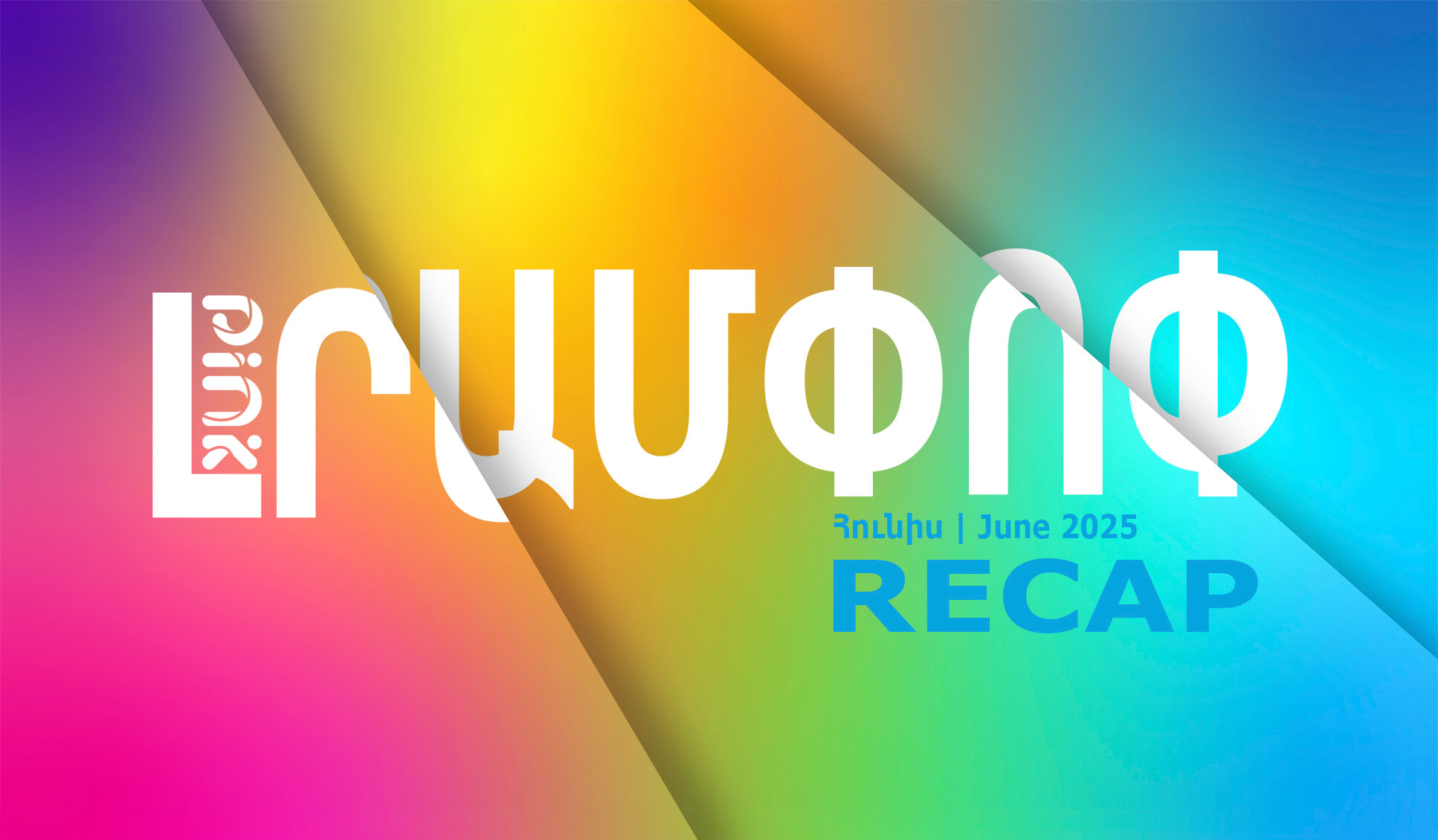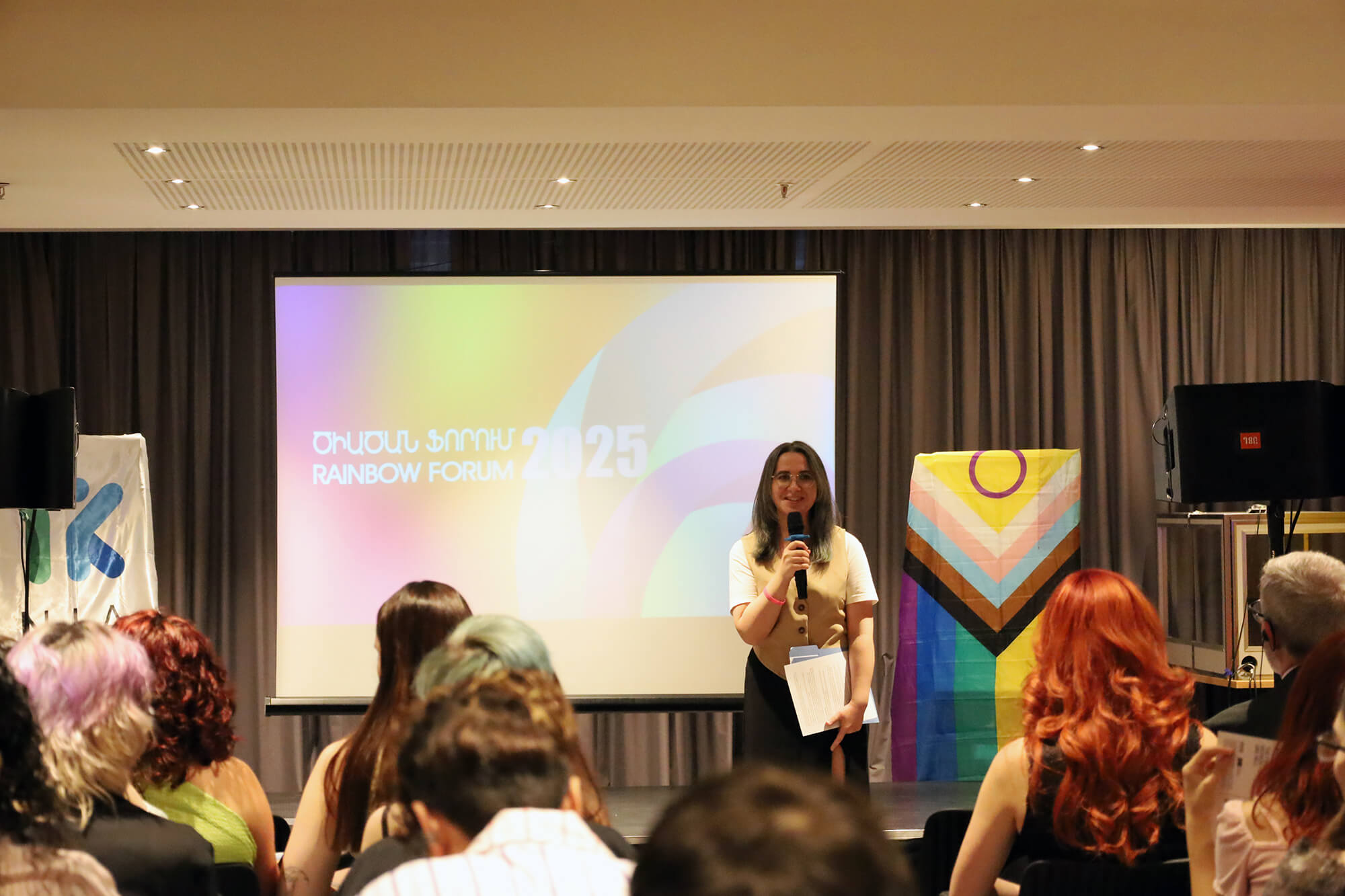Research on conversion practices and conversion therapies in Armenia
In 2019 “Pink” human rights defender non-governmental organization in cooperation with specialists in the field has initiated conducting unconventional and pilot research within the “Rainbow Advocacy Program” project. The research aimed to investigate and document primary information and data on conversion practices and conversion therapies in Armenia to obtain an understanding of the situation and further plan the required steps. The results are key to guide further research on conversion practices and therapies and raising the existing issues.
The following definitions of conversion practices and therapies have been used during the current research. A conversion practice is an action by an individual that leads to change another person’s sexual orientation and/or gender identity from a non-heterosexual to heterosexual, from a non-heteronormative to heteronormative gender identity and expression. Whilst, conversion therapy refers to any professional treatment from psychological or medical field specialists (e.g., psychologists, psychiatrists, sexologists or other specialists).
The research was conducted in four main strands to gather information from various sources. A separate methodology was developed for each strand, and the results were presented in separate sections below (Available only in Armenian). The 4th section is an exception, as the 16 documented cases were not sufficient to conduct further analysis.
Section 1. Legal research on legal and professional, local and international regulations on conversion practices and conversion therapies,
Section 2. Content analysis of specialists’ public materials and speeches on attempts to change sexual orientation and gender identity (conversion therapies),
Section 3. Qualitative research on attitudes and experience of doctors and psychologists on practices of sexual orientation and gender identity change efforts (conversion practice and conversion therapies),
Section 4. Documentation of cases of conversion practices (including conversion therapies) among LGBT people․
Some tendencies were revealed about conversion discourses in Armenia based on the research results․
Based on international legal and policy regulations, prevention of conversion practices can be regulated by state or by national professional entities. However, there are not any existing mechanisms on regulations or prevention of conversion practices in Armenia to this date. Armenian legal and professional fields do not have any regulations that can prevent or ban conversion practices in the country. Additionally, the field of psychological support is not regulated in the country by law. It is important to note that private practices of medical field specialists are not regulated either. Local professional entities do not have any regulations on preventing unethical and discriminative practices by field specialists, including the practices of conversion therapies. There is are also no existing regulations on public speeches of specialists representing professional communities.
Content analysis has revealed that field specialists publicly incite conversion practices, share conversion cases, and provide information on sexual orientation and gender identity /expression (SOGI) which contradicts the international professional regulations and attitudes towards SOGI and change efforts. Discussions on sexuality and SOGI within the professional fields are not available which is also reflected in the diverse public messages about the topic. Additionally, several field specialists publicly announce their discriminative attitudes towards LGBT people and talk about LGBT issues, usually without any referral to any factual justifications or scientific data. Several specialists also use media as a platform to reach audiences or for political purposes, as well as massive speculations of LGBT issues, by abusing the existing political situation in the country.
The interviews conducted with specialists and LGBT people revealed that cases of conversion therapies are not registered or reported. The main problems relate to the consequences of unregulated professional fields which allow numerous specialists to use various approaches in the practice, including discrimination and non-scientific-based practices. Some field specialists practice SOGI conversion efforts using scientifically and professionally disapproved methods (e.g., shaming, blaming, etc.), while being unaware of conversion practices and therapies. Another group of specialists do not follow the changes of professional regulations and scientific data on sexuality and SOGI, presenting homosexuality/transgender identity as disorders that need treatment or by providing subjective interpretations of existing regulations. There is also a group of specialists who are aware of professional regulations and ethical standards. Within this group, some specialists publicly provide information on possibility of SOGI change based on the person’s will where they implement treatments (e.g., behavioral therapy). Finally, there is a group of specialists who follow the professional regulations and ethical standards and condemn conversion practices and therapies.




